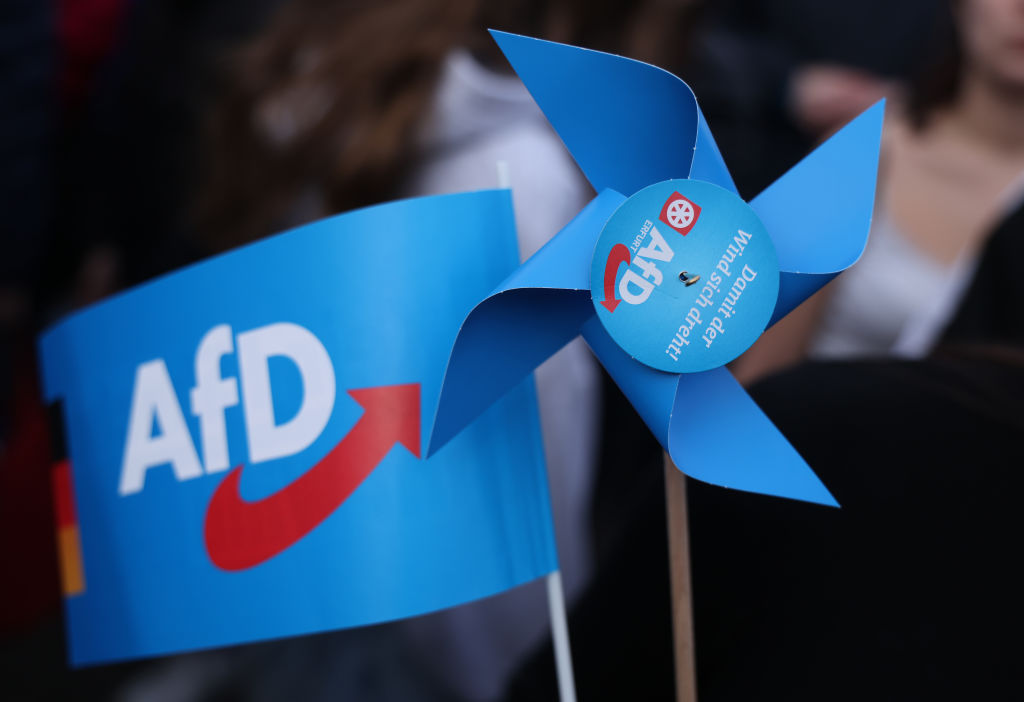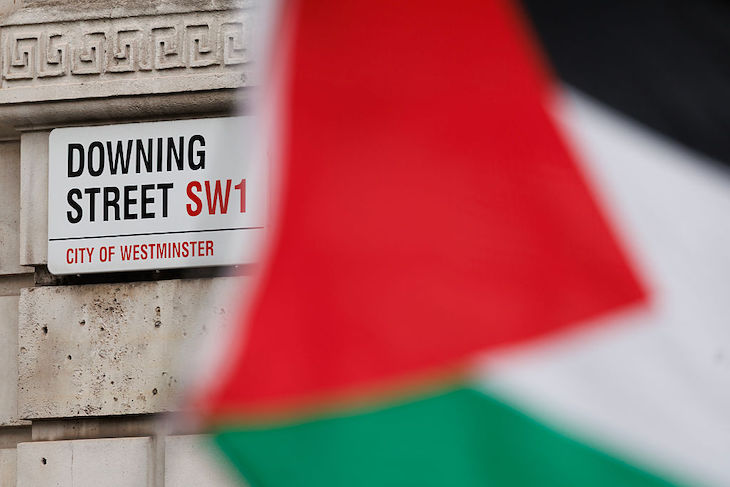Last December the European Commission published its ‘priorities’ for the next five years. All the bases were covered, from defence to sustainable prosperity to social fairness. And of course, the most important priority of all, democracy. ‘Europe’s future in a fractured world will depend on having a strong democracy and on defending the values that give Europeans the freedoms and rights that they cherish,’ proclaimed the Commission, which pledged it was committed to ‘putting citizens at the heart of our democracy’.
December was the same month that a Romanian court cancelled the presidential election, after the surprise first round victory of the Eurosceptic and anti-progressive Călin Georgescu. It was claimed the election had been tainted by Russian interference. As Thierry Breton, a former European commissioner, boasted later on French television: ‘We did it in Romania and we will obviously do it in Germany if necessary.’
There will be no need to cancel the result of the German election. The Alternative for Germany (AfD) polled 20.8 per cent of the vote – double its score of 2021 – but still came in second behind the CDU.
In a healthy democracy, the AfD would now have a major influence on its nation’s politics having earned the support of one in five of the electorate. But Germany isn’t a healthy democracy. There is what Germans call a ‘firewall’, Brandmauer, which will shut out the AfD from any meaningful involvement in the many major issues confronting the country. Instead, Friedrich Merz is expected to form a coalition government with the Social Democrats, who came third in the election.
‘Friedrich Merz has decided to maintain his blockade stance towards the AfD,’ said AfD co-leader Alice Weidel. ‘We consider this blockade to be undemocratic. You cannot exclude millions of voters per se.’
One can in Europe, particularly when the voters are working-class. When it began its rise a decade ago, the AfD’s core voter was described as ‘likely to be male, middle-aged, relatively uneducated, blue-collar worker or unemployed.’
They have broadened their appeal since, particularly among the young: 21 per cent of 18- to 24-year-olds voted for the AfD on Sunday, more than any other party except Die Linke (The Left).
But the AfD continue to poll best among blue-collar workers. According to German broadcaster DW, in Sunday’s election ‘people with a basic education level were twice as likely to vote AfD as those with advanced degrees.’
Germany, of course, isn’t the only European country that ignores its working class. It’s been going on in France for years; a country whose national motto is ‘liberty, equality, fraternity’.
France’s firewall is called the ‘Republican Front’ and for decades it has been routinely erected at elections to keep the hoi polloi at bay, or as they’re otherwise known, Le Pen voters.
The average National Rally voter is similar to the AfD stalwart: middle-aged, in a blue-collar profession, with no higher education qualification and living outside a big city.
In last July’s French parliamentary election, the National Rally won 37 per cent of the popular vote, and they took 125 seats in parliament, making them the biggest single party. All other parties refuse to work with them. Many left-wing politicians even refuse to shake the hands of National Rally MPs; by extension, they are refusing to shake the hands of 37 per cent of their fellow citizens.
One of the most perceptive observers of the disintegration of democracy in France this century is the social scientist Christophe Guilluy. The book that established his reputation, La France périphérique [peripheral France] was published in 2014, and it explained how the metropolitan elite had lost touch with the working-class provinces.
A decade on, this disengagement is more profound than ever; I can testify to it, having moved 18 months ago from Paris to peripheral France, in my case rural Burgundy. The cultural chasm is huge. Paris might as well be another country and when Parisians venture into the provinces they stand out a mile.
The Paris elite make little attempt to conceal their contempt for the ploucs [yokels]. The Yellow Vest movement of 2018 began when the government introduced a green fuel tax. Cars aren’t that important to city dwellers but in the sticks – where there is hardly any public transport – they are vital. The government didn’t care. Its spokesman, Benjamin Griveaux, dismissed the protestors as ‘people who smoke cigarettes and drive diesel cars… not the 21st-century France we want’.
In an interview this week to promote his new book, Guilluy said that ‘the cultural centre of gravity of Western societies is tilting towards the ordinary majority’. In other words, the will of the Yellow Vest protestor is winning out over Benjamin Griveaux and his ilk.
Guilluy endorsed the gist of J.D. Vance’s recent speech in Munich, praising ‘the clarity of his thinking’. He added: ‘The main cause of the so-called “collapse or end of the West”… is first and foremost the consequence of the choice made by Western elites in the last century. The choice to exclude those who are the lifeblood of society, those who keep a culture alive and well: ordinary people.’
Germany’s ‘firewall’ and France’s ‘Republican Front’ are examples of this exclusion. So too was the cancellation of Romania’s presidential election.
The EU brags of ‘putting citizens at the heart of our democracy’ but in reality Brussels is interested only in the ‘right sort’ of citizen. Those that are progressive and globalist, the ‘Anywheres’ of this world.
The ordinary people, the ‘Somewheres’, are of no importance. But the Somewheres are on the march, in Germany, in France and all across Europe, and the firewall won’t hold for ever.








Comments